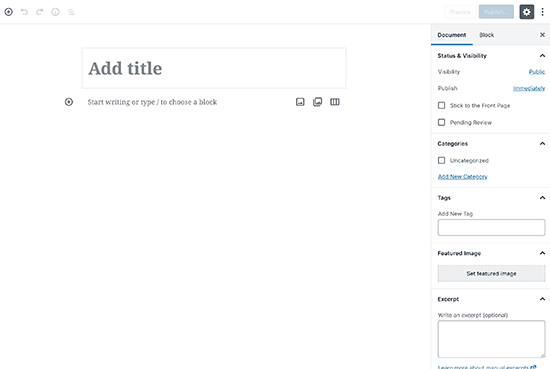
Let’s get right down to the nitty-gritty about the block editor and the WordPress pursuance of Gutenberg. Unless you’ve been following the ongoing news and debates for the last couple of years, the controversies are quite the read. I’m sure that people who have kept WordPress up-to-date will already have discovered the block editor!
Block Editor or Classic Editor?
I’ve been actively developing themes for the new WordPress (not so new anymore) since 2020. At first, I was wondering if I would use the new editor for the Rough Pixels website. As it turns out, I gave in and decided to change over to it. I mean, if I was to create themes for the block editor, learning and using it was paramount.

I’m sure a lot of end-users will be making that choice as well. There are people who will immediately install the Classic Editor plugin while others may not realize they have that option. For myself, I have the block and classic editor installed where I can select either one per post or page.
Is WordPress 5.0 and Beyond Really Popular?
With so much dislike for the Gutenberg editor, and now Full Site Editing (FSE) being implemented, you might want to go back to the old WordPress. Unfortunately, this isn’t really possible; well it is, but it means installing an older version. Of course, you might run into compatibility issues with newer plugins that are made for Gutenberg.
…just something to think about.
Only 5.5 Million Use WordPress 5.
When you consider at least 400 million websites are running WordPress, many are still running pre-version 5.0.
- What is interesting is that less than 1/3 of All WordPress Installations Are Updated to the Latest Version. *From digital.com WordPress stats
- For live websites where users have WordPress 5.0+ installed, it’s just over 5.5 Million.
*WordPress 5.0 Usage Stats
400 Million WordPress websites where 5.5 Million are using version 5.0 (or higher) make one think if Gutenberg, the block editor, and the soon-to-be FSE are popular.
ClassicPress is the Old School WordPress
I’ve written a few articles, like ClassicPress As An Alternative To WordPress. If you want to seriously consider going back to how WordPress was before Gutenberg, ClassicPress might be your solution.
It’s slow to gain popularity, which I believe it’s because they don’t market themselves enough. I’ve encountered this with Joomla over the years as well.
With Joomla, they create an amazing content management system (CMS), but they suck at marketing. How I know this is that I’ve used Joomla since the old days of version 1.5. WordPress, on the other hand, did it right and became a widespread phenomenon—hence, gaining a huge market share! Albeit, a slight decline now.
Still, ClassicPress is one possible solution if you want nothing to do with the newer WordPress. For the most part, plugins will still function and everything you remember from the classic WordPress will be in ClassicPress.
Themes for ClassicPress or Classic WordPress?
The WordPress theme market has become complicated. Right now, I have to design themes to be compatible with both classic and block editors. However, this is becoming increasingly difficult and very time-consuming work. With ClassicPress, my themes at Rough Pixels will work on it, but it just adds to the workload.
I’ve decided to re-evaluate how themes are to be made. It seems as though the majority of users do not want much to do with Gutenberg and the direction of WordPress is going. With this in mind, I am considering making standalone themes for ClassicPress, Classic WordPress, and Block editor-based themes, respectively.
For WordPress and its full-site editing (FSE), I have no interest in that concept.
A Big Topic for Discussion With Pros and Cons of the Block Editor
As with everything, there are always pros and cons. However, with the direction WordPress is going, it does not appear the whole block editor thing is popular—except mostly with the WordPress developer team.
There are still a lot of people (end-users) who prefer the classic way, but there will be a point in time when the classic editor option is no longer compatible. This is why people are slowly discovering alternatives, such as ClassicPress.
Theme development is getting more complicated, which is why I am looking to keep the Gutenberg stuff separate. FSE…I’m not pursuing it. In fact, with the push toward FSE, themes, as we know them, are going to radically change.